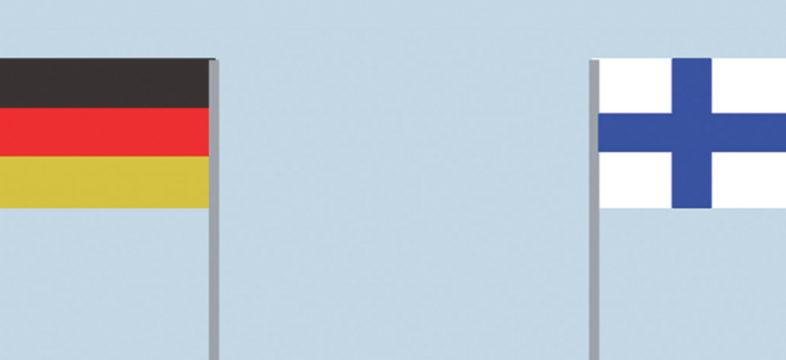
Starting Your Business in Germany – Despite Covid-19
Opportunities for Finnish Businesses in times of Covid-19
The corona crisis has shaken the global economy. While it is true that is has caused widespread economic downturn, new opportunities arise at the same time.
As German businesses grapple with their dependence on overseas supply chains, companies are looking to “de-globalise” their supply chain to be more independent in times of crises. Against this background, German companies are focusing on the European market to meet their supply needs. Suppliers from Finland should therefore be vigilant to seize such opportunities and secure deals that would have gone to overseas markets such as China or the United States before.
From 1 July 2020 on, VAT rates were lowered and now amount to 16 percent until 31 December 2020. This serves to support domestic consumption but at the same times gives space for larger margins when selling goods to Germany.
But the crisis not only facilitates trade deals, it also provides the opportunity to buy German competitors in crisis or even insolvency at bargain prices. Of course, this requires the funds for such a transaction. However, the acquired business may be useful to gain a foothold in Germany because of its interesting product portfolio or valuable customer base.
Finally, a qualified and locally available labour force ensures potential for growth in the future.
Shaping Risks
However, market instability remains and risks apply. Still, Finnish businesses may include provisions in their contracts to be sure to be able to react to adverse changes in the market. Acquisition and sales agreements may be structured in a way that allows a buyer to refrain from the purchase in case it encounters economic woes itself.
Setting Foot and Staying in the Market
To be present in the market, Finnish companies aiming to stay in the Germany will need a German subsidiary eventually. If they choose not to acquire a German competitor, incorporating in Germany may be the right way to do it. Usually, a limited liability company – a German GmbH (Gesellschaft mit beschränkter Haftung) – wholly or overwhelmingly owned by the Finnish parent will be the proper corporate structure.
Incorporating in Germany will also allow businesses to access the national instruments to overcome the crisis, including short-time work, which has proven quite effective when dealing with economic downturns in the past by subsidising labour costs for employers.
The Finnish Network
In this endeavour, you are not alone: Team Finland, the Finnish network for doing business abroad as well as the Trade Guilds support you wherever they can. The largest trade guild is based in the state of Northrhine-Westphalia (NRW) and you can find more information about it here. The trade guilds in Frankfurt, Hamburg and other German cities serve as a hub for information and exchange on doing business in Germany and promote and improve economic life and networking between Germany and Finland.
More information
If you would like more information on what it is like to do business in Germany, you can also download our free e-book.
Saksan Markkinat – eBook (Osborne Clarke) Oppaassa esitellään ensin perustietoa saksalaisista yhtiömuodoista, toimitusjohtajan vastuusta, yhtiön perustamisesta ja yrityskaupoista. Tämän jälkeen käsitellään verotusta ja työoikeutta sekä lopulta käytännönläheisempiä asioita.

Dr. Timo Karsten on yksi Saksan Markkinat eBookin kirjoittajista.



